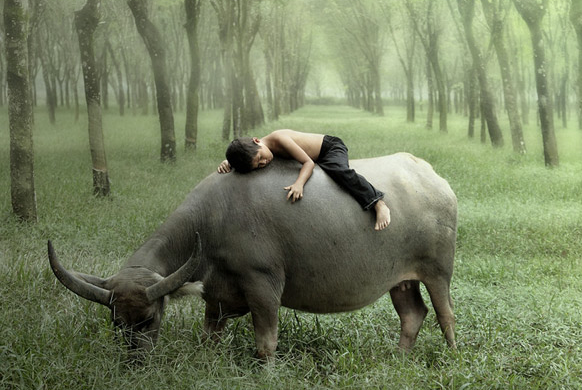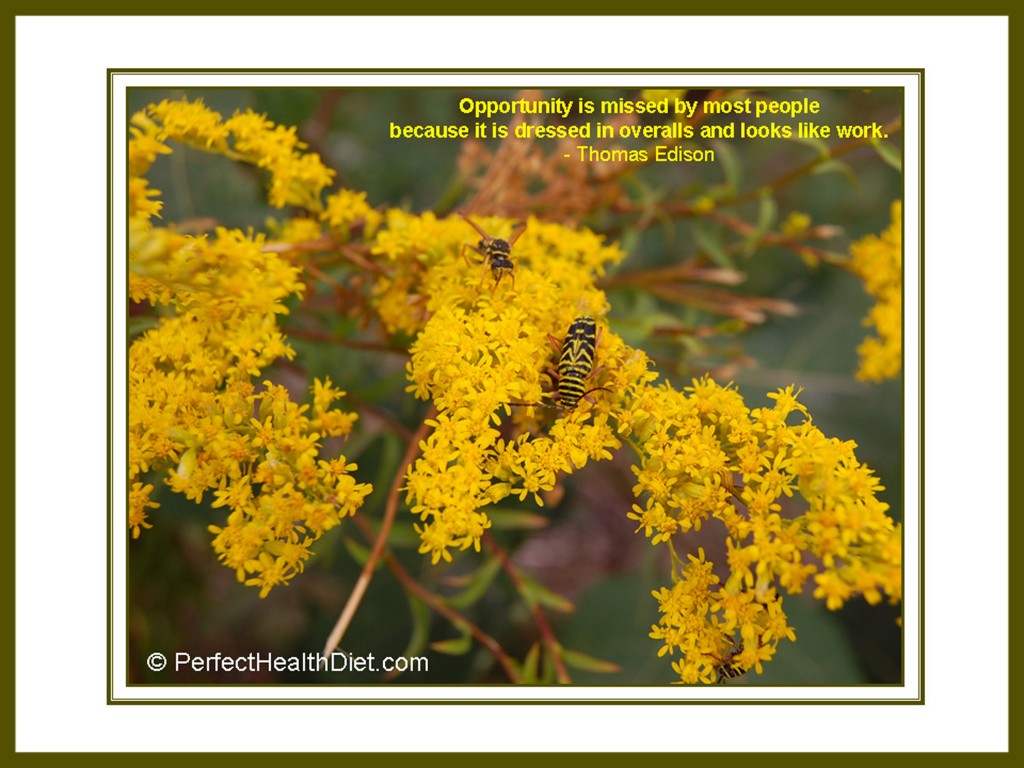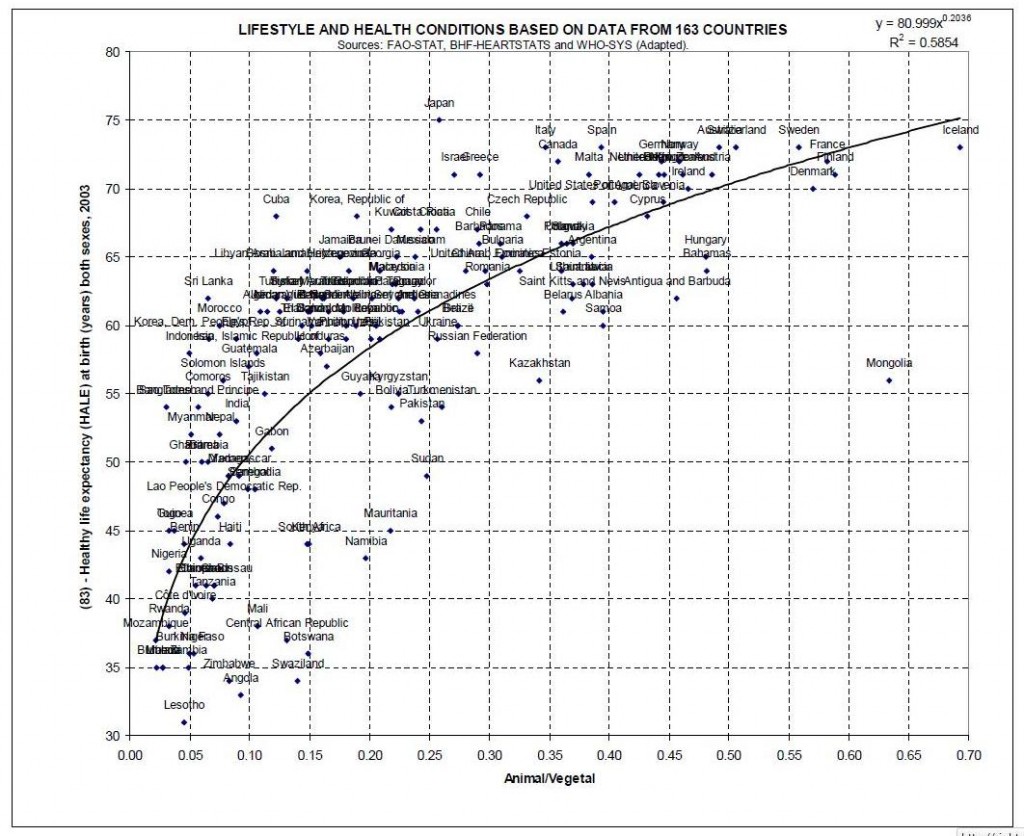It’s been a good few weeks for the Paleo movement, but it’s nice to get back to normal. Around the Web is back!
[1] Upcoming Chris Kresser podcast: Chris Kresser and Danny Roddy will be recording a podcast with me on Friday morning. Chris is soliciting questions and requests for topics of discussion at The Healthy Skeptic.
[2] Interesting posts: You can find round-ups of AHS reminiscences at Richard Nikoley and Diana Hsieh’s Paleo Rodeo.
Stephan has an outstanding “critical examination” of “the carbohydrate hypothesis of obesity”. Briefly, Gary Taubes is correct that obesity is characterized by defects in body fat regulation (Part I), but leptin rather than insulin pathways are most important, and insofar as insulin matters it is insulin resistance that is the culprit because insulin promotes weight loss (Part II), and the most effective diets for causing obesity are not those with the highest carb consumption (>65%), but those with intermediate carb consumption (~50%) (Part III).
Chris Highcock of Conditioning Research found some fascinating papers this week:
- In dogs, obesity leads to a lowering of body temperature. This is neither new nor surprising but paired with Stephan’s point that insulin increases thermogenesis and resting energy expenditure, it highlights that factors other than insulin are critical to obesity.
- Dieting makes you fat: The more times obese people lost 5 kg or more, the more they later weighed. I think this is more evidence that malnourishment promotes obesity. Calorie restriction is fine, but only if nutrients are not restricted.
- Bacterial infections are less likely to lead to memory loss in rats that exercise. Perhaps exercise protects the integrity of the blood-brain barrier, keeping bacteria out of the brain.
Seth Roberts reports that cleaning products such as Febreze can cause migraines and cranky mood. Vinegar and baking soda is a safer way to clean.
Travis Culp at PaleoHacks looks at connections between fructose and leptin.
The New York Times reports that microdoses of chocolate – about one-sixth of an ounce / 5 gm daily – can increase exercise performance and fitness, and that antibiotic-resistant infections are becoming much more common in children. Antibiotic-resistant skin infections generally begin as a red pimple that is often wrongly assumed to be a spider bite.
Every once in a while someone writes to ask me if they should fear a high-fat diet because of CarbSane’s writings on lipotoxicity. I reply that lipotoxicity only appears after metabolic syndrome has developed and, while it may drive the transition from obesity to diabetes, it is not a cause of obesity, and not a danger to people who don’t have metabolic syndrome. Also, the implications for diet are not obvious, since carb intake suppresses NEFA clearance from the blood and enhances glucotoxicity. The literature commonly speaks of “glucolipotoxicity” to describe this compounded toxicity problem. CarbSane hasn’t always been clear on these points, so it’s good to see an excellent post from her covering the basics.
Via Marginal Revolution, MIT researchers have found a possible universal treatment for viral infections: an engineered drug that enters cells and, when it encounters the double-stranded RNA of reproducing viruses, causes the cell to commit suicide. Dead cells can then be replaced by uninfected new cells via the body’s normal wound repair process. My first thought is this sounds great for curing viral diseases, but I wonder if it would shorten lifespan.
Melissa McEwen links omega-6 fats to acid reflux.
Michael Smith of Critical MAS offers a variation on the Leangains approach to fitness.
Barry Sears argues that a weight loss diet should be rich in salmon.
[3] In the hunt: John Durant’s talk on zoos at AHS – and the difficulty of creating natural environments for the animals – made me think of this photo we took on our visit to the San Diego Zoo Safari Park. Here is a cheetah chasing its favorite plush toy:
[4] Cute animal photo:
Via Yves Smith.
[5] Disturbing thought:
George Orwell suggested that the fancier the restaurant, the more people have dripped sweat into your food.
Via Huffington Post.
[6] Shou-Ching’s photo art:
[7] A strong man:
[8] When good cholesterol goes bad: Via Jan Petersen, an excellent talk on lipoproteins:
[9] Video of the week: Grizzly vs bichon:





















Recent Comments